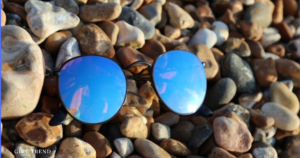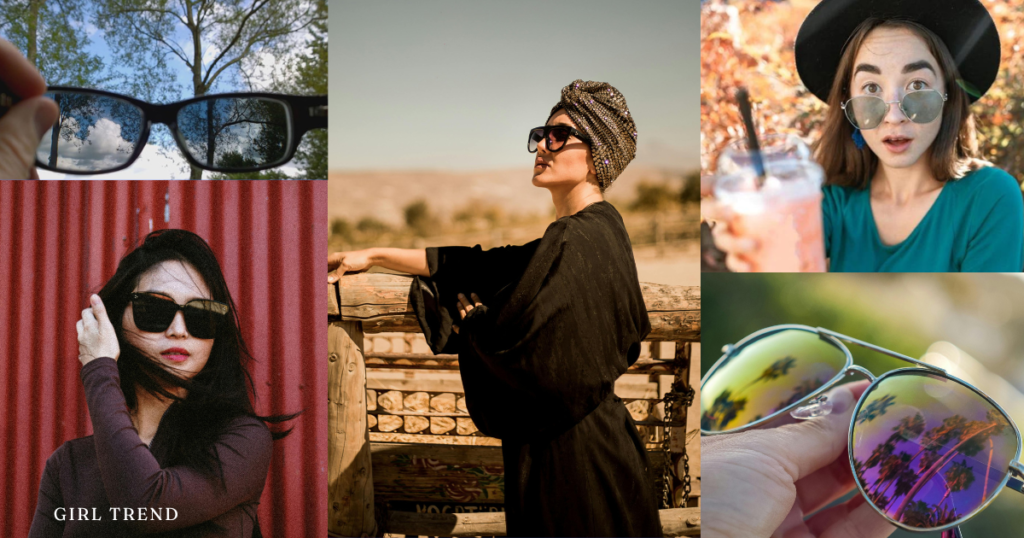Introduction
When choosing sunglasses, one important decision is whether to go for polarized lenses. Why Polarized Sunglasses Are a must-have for Eye Protection. Because they are better for your eyes.They are made to reduce glare, which makes them perfect for outdoor activities and driving. Light is polarized, it means the light waves are moving in specific directions, with specific angle. They help you see more clearly and make everything look sharper, especially in bright sunlight. While polarized lenses don’t block UV rays or blue light directly, they reduce eye strain and make your eyes more comfortable. Some lenses are too dark or too light to block blue light properly. They are good for activities in high-reflective environments.
On the other hand, mirrored lenses are popular because they look stylish and reflect light. But if you want something that helps you see better and reduces glare, polarized sunglasses are often the best choice.
Are polarized sunglasses better for your eye
Polarized sunglasses are good for keeping eyes safe. They are great for making your eyes more comfortable and seeing more clearly when you’re outside. But it’s also very important to choose a pair that blocks 100% of UV rays to keep your eyes safe from harmful sunlight.
You should take good care of your polarized sunglasses so they keep working well to protect your eyes.
If you love spending time outside or just want to protect your eyes, think about getting polarized sunglasses. Because they are good. There are also polarized transition lenses, which change automatically, so you don’t have to keep switching glasses.
Polarized lenses can:
Polarized lenses block out glare. It is very helpful when you’re outside near water, snow, or other shiny surfaces.
Polarized sunglasses make things less bright and cut down glare. It helps prevent your eyes from getting tired, especially when you’re in bright places for a long time.
Polarized sunglasses not only cut glare but also help you see more clearly in bright light. It makes them useful for things like driving, where bright light can make it hard to see.
Polarized lenses are especially good for outdoor activities where bright light or reflections could make it uncomfortable or unsafe.

What is polarized in sunglasses?
To understand how polarized sunglasses work, imagine light as a wave moving along a string. Just like a wave on a string, a light wave moves side to side as it travels forward. The direction in which the string moves can change. It can go up and down, side to side, or in any mix of those directions.
If the string moves at a 45-degree angle, this movement can be broken down into equal amounts of up-and-down and side-to-side motion. If the string moves at a 75-degree angle, there’s more up-and-down movement than side-to-side. This angle of movement is called the “polarization angle.”
When we say light is “non polarized,” it means the light waves are moving in random directions, with no specific angle. Examples of non polarized light include sunlight, light from bulbs, and candlelight. Most natural light sources are non polarized. Polarization usually happens when light interacts with something, like when it reflects off a surface.
So, when light comes from most sources, it’s like the string is being wiggled in different directions randomly, creating waves at all sorts of angles.
Do polarized sunglasses block UV?
If polarized sunglasses have a CE mark, it means they meet the European standard BS EN 1836:2005, which ensures that the lenses block UV rays up to 380 nanometers.
Sunglasses with UV400 lenses block the most sunlight, preventing invisible ultraviolet light between 100–400 nanometers from reaching your eyes. Sunlight also includes visible light, which can be absorbed by the lenses depending on how dark they are.
Darker lenses absorb more visible light, making them more comfortable for your eyes, while lighter lenses absorb less visible light. This is what determines their lens category, which ranges from 0 to 4.
What are polarized sunglasses good for?
Polarized lenses do not block UV light from the Sun, which can harm your eyes. They are designed to reduce glare, not just during the day but possibly at night as well.
What is the benefit of polarized sunglasses?

Glare Reduction:
Glare can be distracting at best and dangerous at worst. Studies show that traffic accidents, especially at intersections, happen more often when the sun creates glare. By reducing glare, you can stay more alert and aware of your surroundings, which might help you avoid accidents and injuries.
Improved Clarity:
Even when glare isn’t a safety concern, it can still make it hard to see clearly. Athletes and outdoor people often use polarized sunglasses to see with greater precision. Polarized sunglasses can also give you a more accurate view of colors compared to non-polarized sunglasses.
Fatigue Prevention:
Research shows that glare from the sun can lead to fatigue. Glare makes your eyes work harder to process what they’re seeing, which can cause eye strain. This strain can make your eyes feel tired, sore, or even difficult to keep open.
It increases visual comfort. It sharpens the contrast between light and dark. Furthermore, it allows you to see true colors. Additionally, it helps to prevent eye strain and fatigue. Polarized lenses come in various colors, from very dark to very light shades. The color or darkness of the lens doesn’t affect how well they block glare—both light and dark lenses can be equally effective.
However, different colors can be more helpful in specific situations. It supports in different conditions. For example: A traditional dark lens is great for a bright day.
A pale blue lens can reduce eye strain for people who spend long hours in front of a computer. Yellow or pale orange lenses are often used in glasses designed for nighttime driving. Due to the chemical process, It is used to make polarized lenses, they are never completely clear. There is always some degree of tinting, even if the shade is very light. Wearing polarized sunglasses is truly helpful for different occasions.
Are polarized sunglasses good for driving?
Yes, polarized sunglasses are great for driving because they can make your commute safer. Daytime driving with polarized sunglasses works well in any season, and you can even wear them at night to reduce glare from oncoming traffic or bright streetlights.
Here are some benefits of wearing polarized sunglasses while driving:

– Better visual clarity and contrast, giving you enhanced colors and sharper vision
– Less glare and reflection, making your vision more comfortable
– Reduced eye strain, fatigue, and squinting, leading to more relaxed vision
– Fewer distractions, allowing you to stay more focused
Do polarized sunglasses block blue light for eye protection?
Not all sunglasses are equally effective at blocking blue light. Some may have lenses that are too dark or too light to block blue light properly. The quality of the lens material also plays a role in how much blue light is blocked. Polarized sunglasses are made to reduce glare and improve visual clarity, especially in bright sunlight. Although they don’t specifically block blue light, they can indirectly reduce the amount of blue light that reaches your eyes.
What do polarized sunglasses look like for eye protection?
Polarized lenses come in various tints. Yellow or orange-tinted sunglasses are popular for sports because they can increase contrast in hazy or foggy conditions, but these tints can also distort colors. Some tints, like amber, rose, or green, can effectively block blue light. Grey tints provide the most natural color vision.
When selecting outdoor eyewear, the type of filter and tint can greatly affect performance and safety. Polarized sunglasses are especially beneficial for activities in high-reflective environments, such as water or snow sports like fishing, boating, skiing, and snowboarding.

Are polarized sunglasses mirrored?
Choosing the right type of lens depends on your preferences and lifestyle, but the debate often comes down to mirrored vs. Polarized lenses. It’s not about which is better—it’s more about personal choice. Both types help with color and contrast, and polarized lenses also reduce glare, offering comfort while traveling.
Many people prefer mirrored or reflective polarized sunglasses because they like the lens’s look. If you’re fashion-conscious, this style might be your best option.
On the other hand, polarized sunglasses are also stylish but less noticeable. They have tinted lenses instead of mirrored ones, making them harder to recognize.
When wearing mirrored sunglasses, people can see their reflection on your lenses, while polarized sunglasses look like any other with different lens colors, though they might have a darker tint that makes things appear darker. Remember to use lens cleaning wipes for the best care and experience.
Conclusion
In conclusion, polarized sunglasses are great because they reduce glare and help you see more clearly. This makes them ideal for driving and spending time outdoors. Even though they don’t block UV or blue light directly, they still protect your eyes by reducing strain and keeping your vision comfortable.
While mirrored lenses are stylish, polarized lenses offer more practical benefits for everyday use. Choosing polarized sunglasses gives you both protection and comfort, making it easier to see clearly in different situations.



